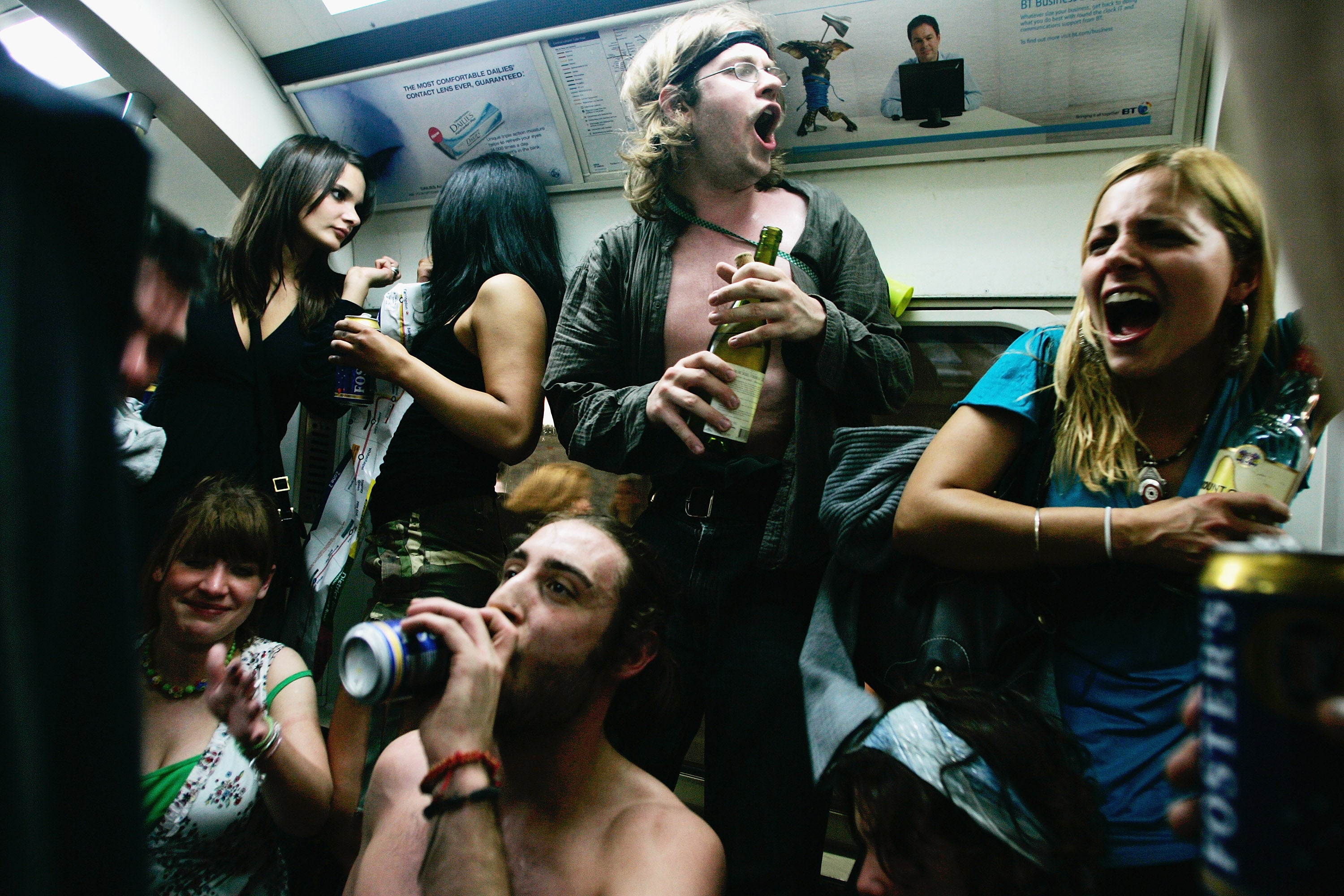What you’re getting wrong about kids and drinking (and I’m a wine merchant)
England has been crowned the worst in the world for underage alcohol consumption – here’s how to stop the problem before it gets even worse, writes Rosamund Hall


My first drink was when I was just 14 years old. It was a small bottle of warm Babycham on New Year’s Eve at my neighbours’ house – and it made me sick. I never touched Babycham again. What was yours?
Chances are, if you’re British, you’ll have an answer without having to think about it: a fond (or slightly queasy) recollection of that first night blind drunk; an embarrassing spectacle where you vomited or fell over or had to be put to bed by your parents; a brand you can never touch again because of the distant nausea that accompanies the memory. That’s because we have an ingrained culture of drinking – and not in a way we should be proud of. The rest of the world brands us “Boozy Brits” for a reason.
And now, research published by the World Health Organisation has shown that the UK has the worst rate of child alcohol abuse worldwide. There are some staggering figures: more than half of British children have drunk alcohol by the age of 13. The WHO also examined data from more than 280,000 children from 44 countries aged 11, 13 and 15 who were asked about their use of cigarettes, vapes and alcohol. We came out at the top of the leaderboard for underage drinking and vaping, with girls aged 13 and 15 in the UK doing it significantly more than boys.
Dr Jo Inchley from the University of Glasgow, who worked on the study, said: “We’re seeing really high levels of early initiation into drinking among boys and girls in England.” To say this is alarming would be an understatement.
And yes, I know it might seem strange that I’m so worried – given that I’ve dedicated my professional life to alcohol, wine specifically – but I am. For one, I’m a mother. But I am also simply a member of society who is aware that kids are in crisis. And I believe that we need a nationwide collective effort to change how we approach our relationship with one of the most harmful (legal) drugs: alcohol.
When I was growing up, there was a widely accepted view among my peer group that we drank. My local pub where I grew up was known as “the school pup” and was packed on a Friday night with underage drinkers. House gatherings always had a well-stocked kitchen of booze and parties were often held in the function rooms of pubs. I look back on this with disbelief.
Did I grow up in a household where alcohol was consumed? Yes. But did I get drunk? No. I put my parents’ approach to – and relationship with – booze as key to my own ability to moderate my alcohol intake as an adult.
This is what I think people are getting wrong when it comes to kids and drinking: it would be easy to take a heavy-handed approach to tackling this problem but unfortunately, we know that teenagers do not respond positively to draconian measures. The more you prohibit something, the more likely you will see a rebellion.
I was never banned from drinking or going to clubs, I was always given the choice. The result? I would often prefer to stay at home with friends than go to Hollywood’s in Romford on a Saturday night. I had the option to choose – and I chose well. All of my friends who drank to excess or went out in an extreme way had parents who had a very strict approach, trying hard to curb the natural instincts of a teenager. Extreme measures just don’t work.
We also need to look at this problem from a higher policy perspective. I have long had an issue with energy drinks – while supermarkets have a voluntary ban on selling these to under-16s, they are still widely available in the local corner shop.
In my opinion, these drinks can be a gateway to alcopops in the RTD category (“ready to drink”). They are often brightly coloured and (like disposable vapes) appear actively marketed to appeal to a youthful audience. I think there should be much stricter legislation around the advertising of these products.
But perhaps most importantly, have policymakers ever stopped to ask children why they are drinking and vaping?
We need to have conversations with our kids to understand the problem. After all, youth services have been dramatically slashed through austerity – and entertainment venues such as cinemas continue to close at an alarming rate, or are eye-wateringly expensive. Young people need something fun to do, yet we seem to be only removing their options and opportunities – then blame them for being bored and turning to risky or antisocial pursuits.
We’ve all been through a rough time over the past few years due to the pandemic but it is our children who have suffered most. It doesn’t surprise me that the report which prompted the damning findings about England and underage drinking was based on a survey conducted in 2021 and 2022: at that time, children were emerging from a period of highly disruptive schooling, coupled with many parents feeling great pressure financially due to the cost of living crisis. Anxiety was, and still is, high. It’s a tough time.
But it serves us all to remember that children do learn from our behaviour – and it’s on us adults to model a greater respect for alcohol and moderate consumption. Our language concerning alcohol doesn’t help: phrases such as “wine-o-clock” or “mummy’s medicine” perpetuate the normalising of drinking at stressful times and to excess.
We are not going to become a nation of teetotallers but we can try to emulate our continental neighbours and work to drink in moderation and with food. And if we use the mantra “drink less, drink better”, we will all be better off for it.
Rosamund Hall (DipWSET) is a wine merchant and consultant






Join our commenting forum
Join thought-provoking conversations, follow other Independent readers and see their replies
0Comments